Picture this: it’s the long weekend and you have been looking forward to sleeping in on Monday morning for what feels like an eternity. You get the fluffiest pillows, you put on your comfiest pajamas, and you snuggle in for what promises to be the most relaxing sleep of your life. When the alarm that you had forgotten to turn off blares at 6:45 AM, you’re left groggy, angry and betrayed by your past-self! Currently our gardens and green spaces are still in a deep slumber. Although the warm weather makes it tempting to get out and start gardening, we need to let them rest until the April thaw before we get to work.
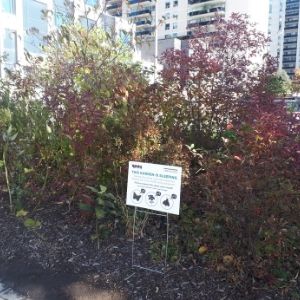
The truth is, a garden in the winter doesn’t have the same joie de vivre as it does during the spring and summer. Most of the colours go, along with the leaves and flowers, leaving behind the brown stalks of perennials as a reminder of their former vibrant selves. Even though our gardens may lose some their aesthetic value during the winter, they continue to do incredible things for local wildlife all year-round.
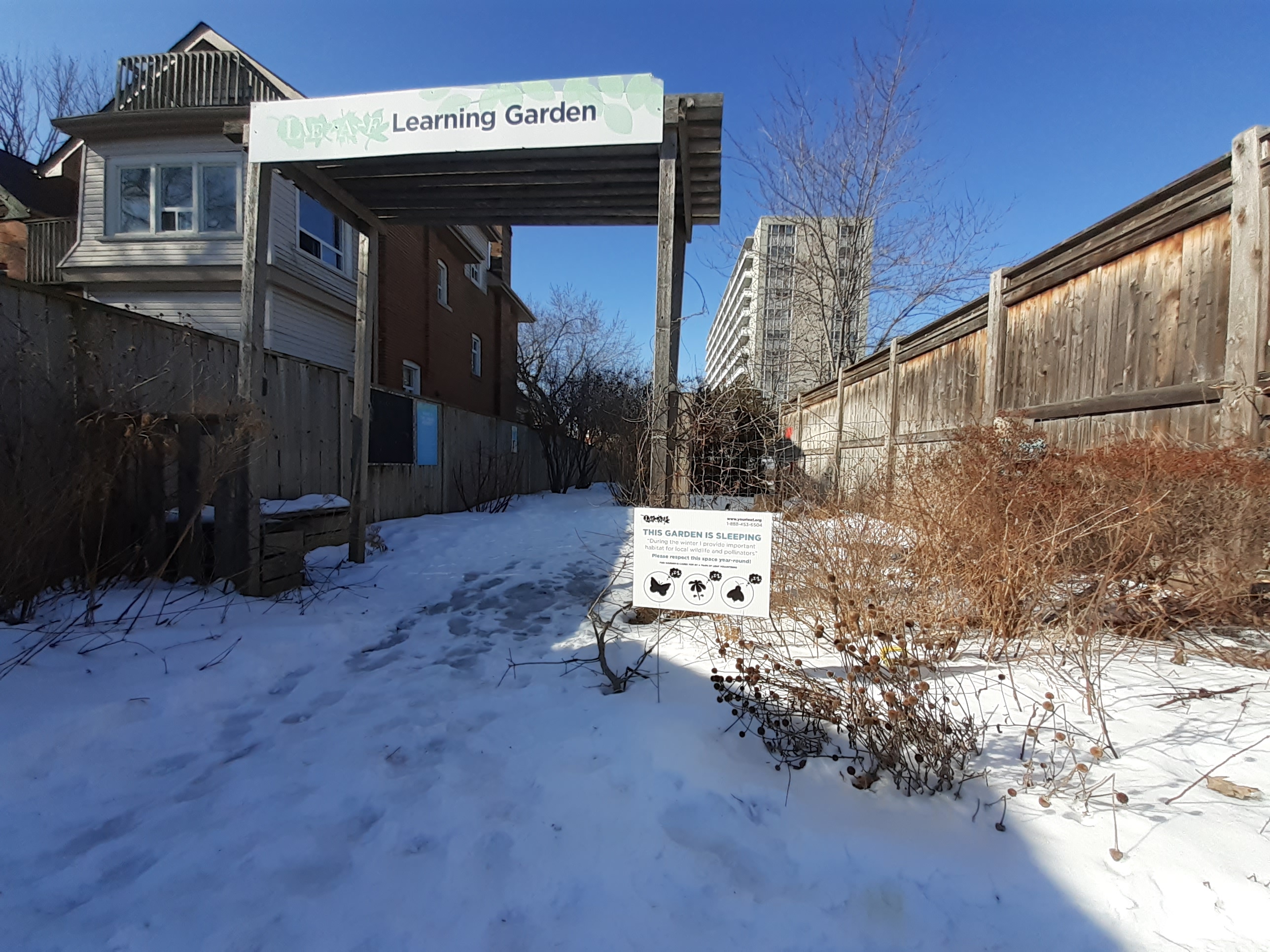
The dried stalks and leaves make the perfect over-wintering habitat for native pollinators, such as butterflies and bees. Without these pollinators our gardens would not be able to flourish during the warmer months. Leaving stalks standing and keeping leaves on the ground during the winter ensures that our gardens will have a healthy population of pollinators year after year. It’s essential that we remind everyone of how important it is to protect our gardens until the spring thaw and to not disturb those spaces until then.
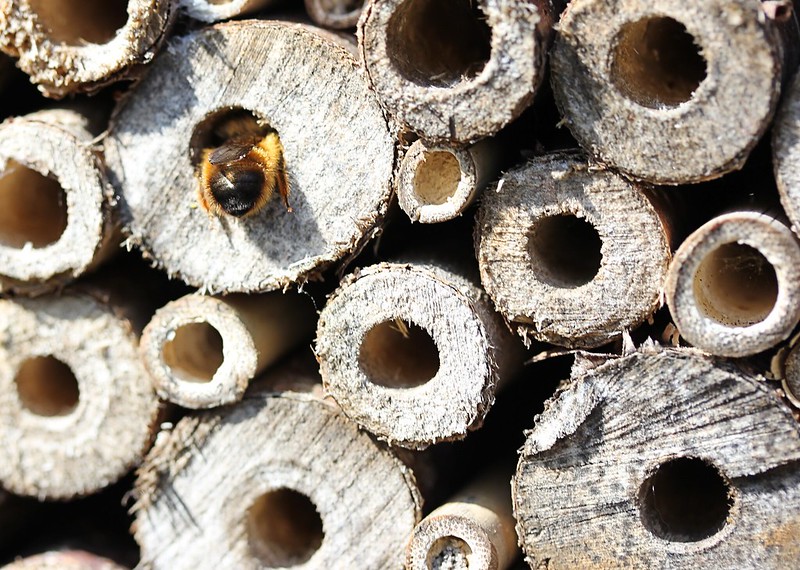
"Beehotel" by echoe69
This gave our volunteer Garden Stewards an idea to create signs to remind the public how important our gardens are during the winter. LEAF has six Urban Forest Demonstration Gardens that are tended to by groups of volunteer Garden Stewards. Together, we designed signs that we install every fall, at the end of the season, to highlight the importance of these green spaces during the winter. The signs proclaim, “This Garden Is Sleeping!” and for people to “please respect this space year-round!”
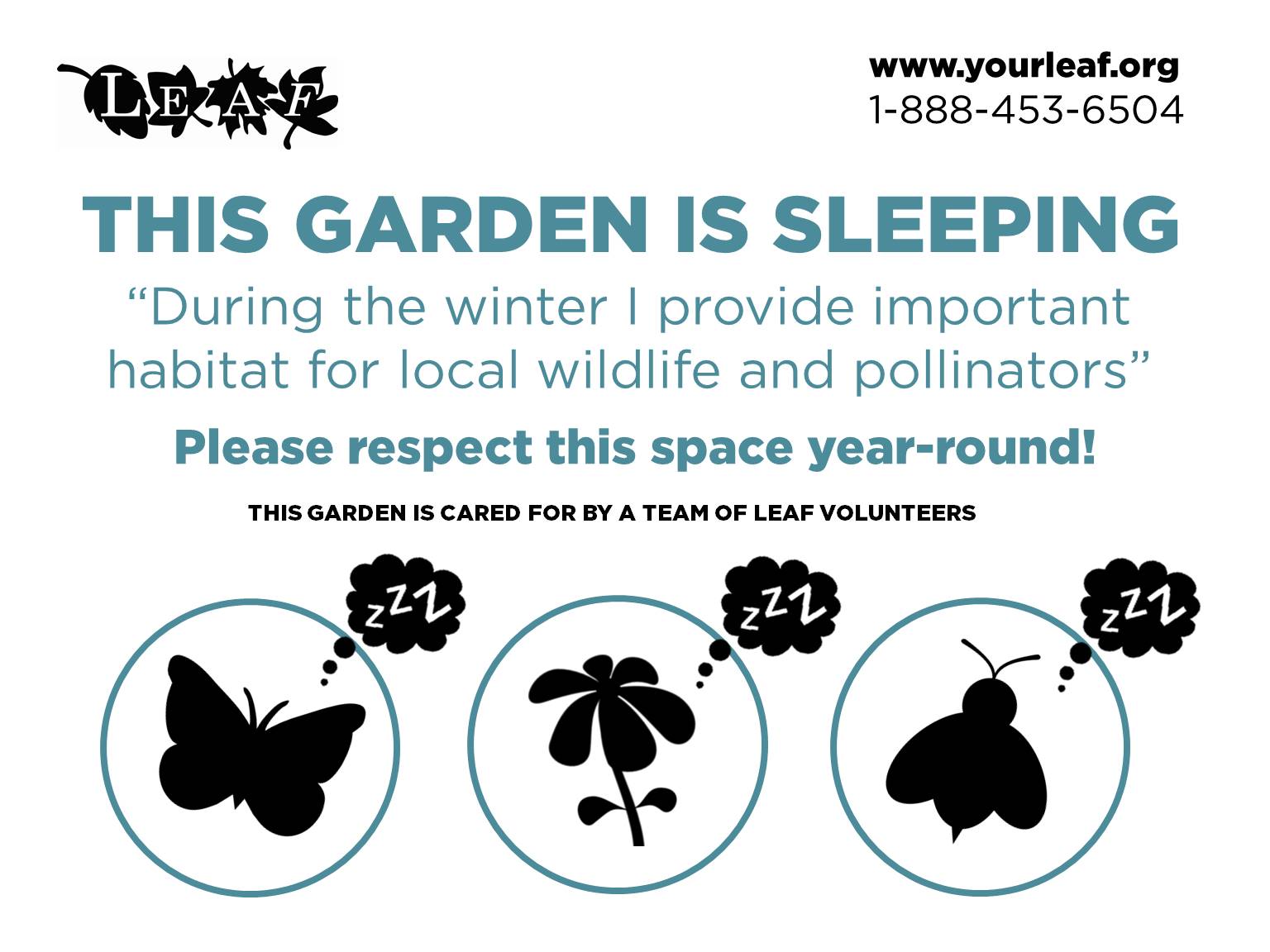
The value of these green spaces in our cities does not fall with the leaves in autumn. While we might be keen to take advantage of this warm weather and start gardening, it’s important that we leave them be while they are still being used by pollinators as habitat.
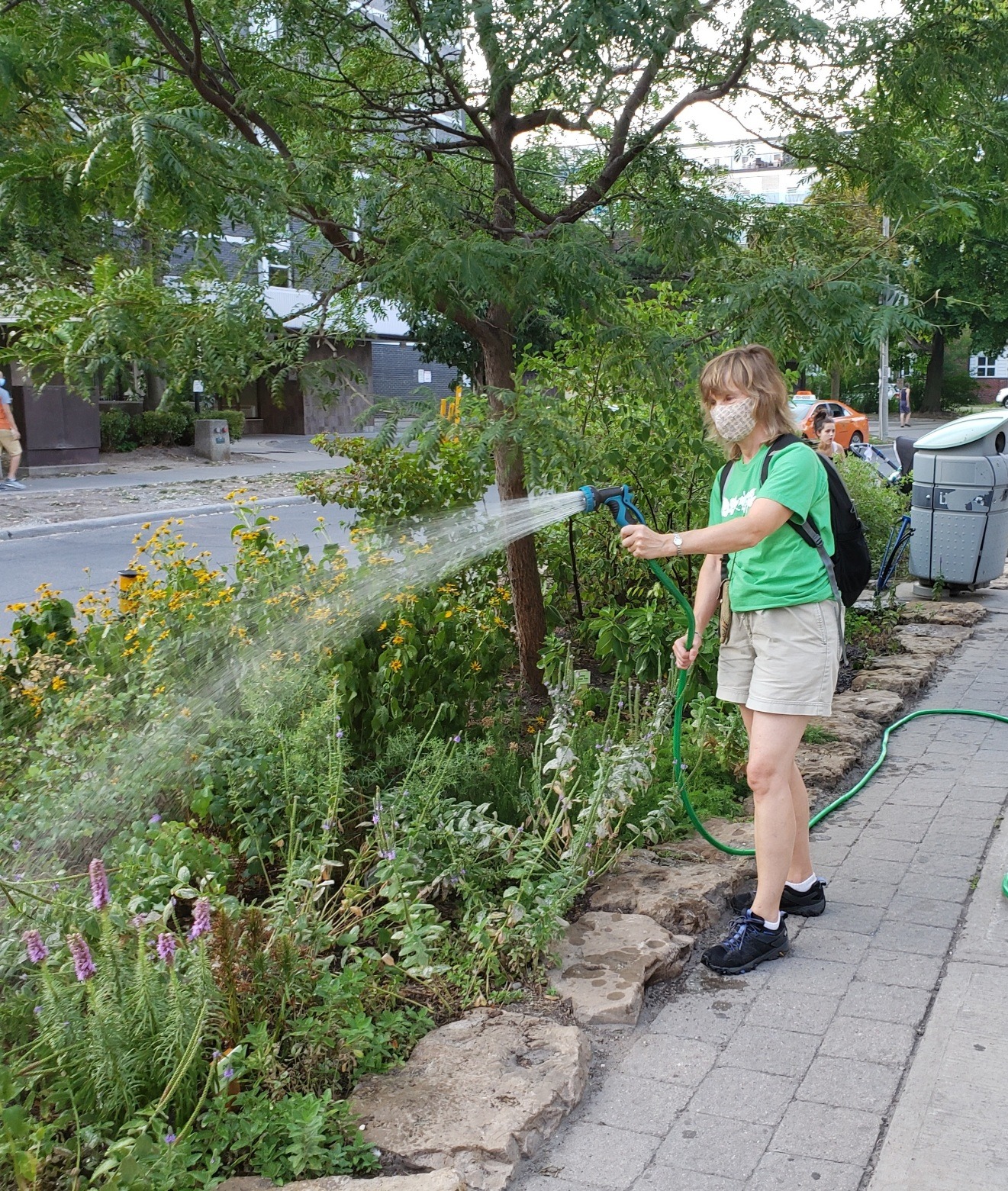
Don’t give your garden a rude awakening - coming from someone who forgot to turn off their alarm – it needs its beauty sleep.
If you want to help take care of our Urban Forest Demonstration Gardens, we’re currently accepting new volunteers! Learn more about the LEAF Volunteer program and our volunteer Garden Stewards.
Learn more about the important connections between urban plants and urban wildlife through our Backyard Biodiversity campaign – factsheets, blogs and #BackyardBiodiversity tips on social media!
Brian Millward is the Stewardship Coordinator at LEAF.
Our Urban Forest Demonstration Gardens are supported by Ontario Power Generation and the Toronto Transit Commission.
The #BackyardBiodiversity campaign is a partnership initiative with the Toronto Wildlife Centre and is supported by Ontario Power Generation.
